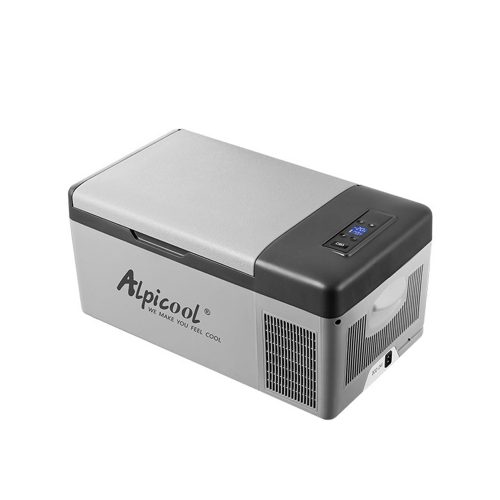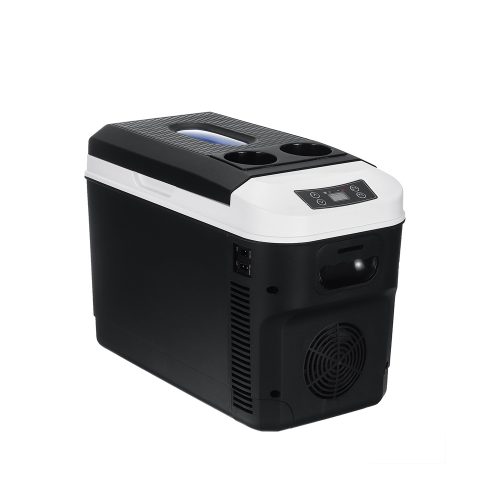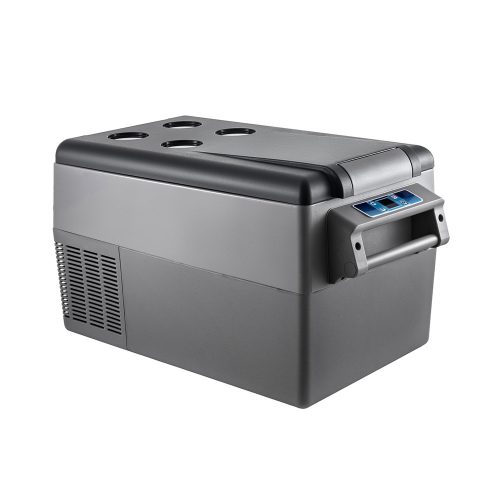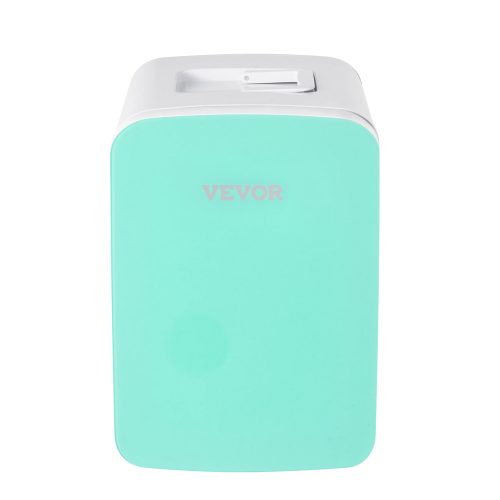BEST CAMPER REFRIGEARTOR COLLECTION FOR YOU
- Camper Refrigerator Capacity
How often are you willing to shop at the grocery store?
Do you need a frozen food section? If so, how big is it?
- Efficiency and Power Consumption
- Budget
- Styles/Configurations
Front-loading refrigerator (upright)
Front Loading Refrigerator (Drawer)
- Compressor & Absorption Refrigerator
Pros
1.Energy efficient
2.Works well in uneven terrain
3.Powerful compressor motor
Cons
1.Expensive (prices range from $300 to $2000)
Absorption refrigerator
Pros
1.Multiple power options (12V DC, 110V AC, or propane)
2.Long run time
Cons
1. Running them on propane means you need to worry about other fuel lines
2.Inefficient when running on 12V power
3.More difficult to install
4.Extra ventilation
5.Due to the airflow exchange system, these camper refrigerators should be kept level to operate correctly.
- Reliability and Warranty
- The best brands:
JOYTUTUS portable refrigerator
Chefman portable refrigerator
CROWNFUL portable refrigerator
Midea portable refrigerator
Frigidaire portable refrigerator
ICECO portable refrigerator
BougeRV portable refrigerator
AUSRANVIK portable refrigerator
YITAMOTOR portable refrigerator
Whynter portable refrigerator
Dometic portable refrigerator
mycoolman portable refrigerator
Engel 60l portable refrigerator
Halfords portable refrigerator
KINGS portable refrigerator
Costway portable refrigerator
- Setting the right temperature.
- Camper refrigerator Options
- Keeping frozen foods in the bottom of the camper refrigerator
- Mount the camper refrigerator in the shaded part of the camper
- Make it colder with a frozen water bottle
- Use ventilation fans, airflow, and low-temperature settings to keep it cool
- Always level your camper refrigerator
- Choose the right size
- The differences between electric, propane, and combination refrigerators
- Compressor Refrigerators
Later, as the fluid flows into the low-pressure evaporator, the temperature becomes colder. The fluid circulates between the two, keeping the interior cold while pumping hot air out into the surrounding area.
- Thermoelectric Refrigerator
While these thermoelectric refrigerators are smaller and more compact, they also require more energy to operate effectively.
- Absorption Refrigerators
The heat loss causes the gas to be transferred back to the liquid to continue the evaporation stage so that the process can be cycled. This process keeps the camper refrigerator cool as long as the heating coil is heated. Absorption refrigerators perform best when there is a source of airflow over the heating coil, especially if you use this portable refrigerator in hot weather.
Increase circulation
Don't overfill your camper refrigerator
Don't put hot food in the camper refrigerator
Don't leave the camper refrigerator door open
Let the camper refrigerator get cold before you travel
Check the camper refrigerator door seal
If your car fridge is not running, the first thing you should check is whether you have run out of propane or electricity.
-Is the cooling unit leaking?
Open the access door at the back of the car fridge. The main signs of a leak are:
There is a strong ammonia smell.
Yellow stains or residue on the coils in the back of the car fridge.
-Are ammonia deposits building up?
-Is the cooling unit icing up?
-Is the car fridge burner failing?
-Tried everything, and it's still not working?
It may sound crazy, but the problem may be related to where and how you parked your car.
If your car fridge is parked and running on a ramp, ammonia may be collected in the evaporator instead of circulating through the system. An ammonia blockage can slow down or eventually stop the cooling performance of your car fridge.
To solve this problem, make sure you park in a flat, level space.





